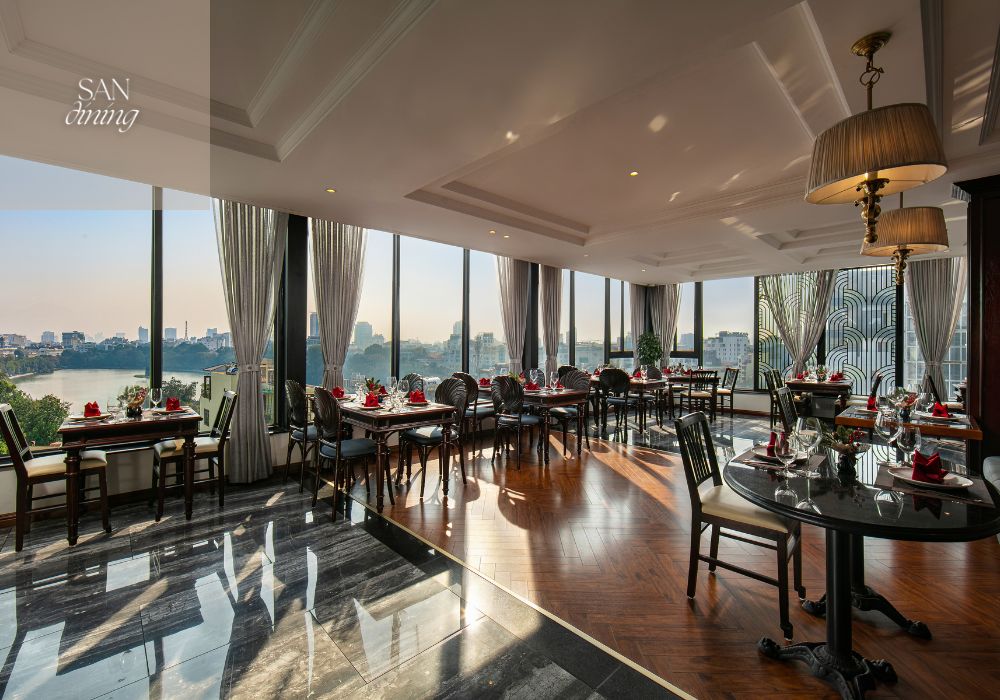Savor Authentic Asian Cuisine With a Pan-Asian Twist for a Cooking Experience
Getting started on a culinary journey through authentic Oriental cuisine, improved with a Pan-Asian twist, uses an one-of-a-kind opportunity to explore the rich tapestry of flavors that define the area's varied cooking practices. This experience invites you to enjoy the exquisite balance of preferences-- pleasant, salted, spicy, and sour-- integrated by aromatic herbs and spices. Visualize the ingenious combination of Thai curry and ramen or the unforeseen pleasure of sushi burritos. As you consider these attracting dishes, think about the cultural stories and historic impacts that shape them, each bite providing a story waiting to be found.

Exploring Pan-Asian Tastes
In the world of international gastronomy, Pan-Asian food stands out for its remarkable diversity and the harmonious interplay of flavors from numerous Asian cultures. This cooking technique celebrates the distinct ingredients and abundant customs found across the continent, producing a tapestry of preferences that is both interesting and satisfying. Secret to Pan-Asian cuisine is its capacity to balance different flavors-- wonderful, salted, spicy, and sour-- while highlighting the freshness and high quality of each active ingredient.
From the umami-rich soy sauce of Japan to the fiery chili peppers of Thailand, Pan-Asian cuisine provides a considerable combination of flavors. These elements are commonly combined in innovative methods, boosting recipes with layers of complexity. As an example, the usage of fragrant natural herbs such as lemongrass and cilantro, common in Vietnamese and Thai cuisine, adds a rejuvenating illumination to dishes, while the unification of coconut milk delivers a luscious, abundant structure.
The focus on fresh fruit and vegetables and aromatic seasonings makes certain that each meal is not just a feast for the taste but likewise for the detects. Pan-Asian cuisine welcomes restaurants to embark on a culinary journey, checking out the vast and varied landscapes of Asian gastronomy with every bite.
Blend Dishes to Try
While Pan-Asian cuisine is celebrated for its traditional tastes, the contemporary culinary landscape is significantly welcoming fusion recipes that blend these timeless components with influences from various other areas. This cutting-edge method not just honors the abundant heritage of Oriental culinary arts yet additionally presents novel preference experiences that attract contemporary palates.
A prime instance of such a combination recipe is the Korean-Mexican taco, where marinaded bulgogi beef is wrapped in a cozy tortilla, covered with kimchi and a zesty gochujang-infused salsa. This combination marries the strong, mouthwatering tastes of Korea with the dynamic, fresh components of Mexican cuisine. Likewise, sushi burritos have actually obtained popularity, joining together the fragile artistry of Japanese sushi with the passionate, hand-held benefit of a burrito, usually including fusion ingredients like tempura shrimp and avocado with a drizzle of wasabi mayo.
An additional notable recipe is Thai curry ramen, which infuses the luscious, fragrant flavors of Thai curry into the calming brew of standard Japanese ramen, creating a harmonious mix that entices the senses. These blend dishes extend past mere uniqueness; they represent a cooking discussion between cultures, motivating expedition and advancement in the globe of Pan-Asian food.
Crucial Components and Flavors
To truly appreciate Pan-Asian food, one have to understand the necessary ingredients and seasonings that form its foundation. This diverse culinary style draws from a rich tapestry of Eastern practices, utilizing a harmonious blend of structures and flavors. Trick active ingredients include soy sauce, fish sauce, and oyster sauce, which pass on a savory umami deepness vital to Eastern recipes. Corresponding to these are rice vinegar and mirin, offering a fragile acidity and sweetness.
Aromatic elements are crucial, with garlic, ginger, and lemongrass being common throughout numerous Pan-Asian dishes. These active ingredients provide an aromatic base that improves the complexity of tastes. Spices such as celebrity anise, cardamom, and cinnamon present heat and character, echoing impacts from regions like China and India.

Cooking Strategies and Tips
Mastering the art of Pan-Asian food needs knowledge with its unique food preparation strategies, each contributing to the dynamic tapestry of tastes this culinary tradition is celebrated for. Central to these approaches is the stir-fry, a rapid food preparation method that maintains the dietary honesty and dazzling shades of ingredients. Using a frying pan, the stir-fry approach allows for address even warmth circulation, important for attaining the characteristic appearance and taste balance of Pan-Asian meals.
One more essential method is steaming, especially common in Chinese cuisine. This gentle method maintains the natural tastes and nutrients of active ingredients, making it excellent for fish and shellfish and veggies. Dumplings, a precious staple, usually take advantage of steaming, causing soft, delicious textures.
Cooking, additionally integral, imparts great smoky midsts to meals such as Korean bulgogi or Japanese yakitori (Instagrammable restaurants Islamabad). This strategy commonly involves seasoning active ingredients, enabling flavors to pass through deeply before food preparation over an open flame or warmer
Last but not least, understanding the art of balancing flavors-- pleasant, sour, salty, bitter, and umami-- is crucial. Effectively layering these components can raise a dish from ordinary to extraordinary, supplying a complicated and satisfying culinary experience that personifies the essence of Pan-Asian cuisine.
Eating Experiences Worldwide
Across the globe, Pan-Asian food provides an unmatched eating experience, celebrated for its rich tapestry of flavors and vibrant discussions. This cooking sensation has transcended social boundaries, recording the hearts and tastes buds of food fanatics worldwide. In cosmopolitan cities like New York, London, and Sydney, Pan-Asian dining establishments function as fusions where cooking traditions from Thailand, Japan, China, and past converge, giving diners with an eclectic mix of recipes that highlight the region's diversity.
The international appeal of Pan-Asian cuisine depends on its ability to provide both authenticity and technology. Chefs skillfully wed conventional ingredients such as lemongrass, soy sauce, and miso with modern methods, causing recipes that are both refreshingly brand-new and acquainted. This blend enables restaurants to start a culinary trip that appreciates heritage while welcoming modernity.
Furthermore, eating experiences are elevated via thoughtfully made settings that show the values of Pan-Asian aesthetic appeals. From minimal Japanese-inspired insides to dynamic Thai-themed areas, each dining establishment provides an unique setting that enhances the culinary offerings. Therefore, customers are not just taking in a dish yet partaking in a cultural experience, making Pan-Asian eating a really international phenomenon.
Conclusion
The exploration of Pan-Asian food offers a profound understanding of the complex interplay of tastes and go to this site cooking traditions across Asia. By welcoming fusion recipes such as Thai curry ramen and sushi burritos, the cooking journey not only highlights the versatility of traditional ingredients yet also showcases innovative modern-day strategies. This gastronomic journey, enhanced by cooking approaches and vital flavors, supplies a i loved this special possibility to value the cultural diversity and culinary creativity that define Pan-Asian cuisine on a worldwide range.
Beginning on a culinary trip via genuine Asian food, enhanced with a Pan-Asian spin, uses an one-of-a-kind chance to explore the abundant tapestry of flavors that define the area's varied cooking traditions.In the realm of international gastronomy, Pan-Asian cuisine stands out for its impressive diversity and the harmonious interplay of flavors from various Oriental cultures. Trick to Pan-Asian food is its capacity to stabilize contrasting flavors-- pleasant, salted, spicy, and sour-- while highlighting the quality and high quality of each component.

Comments on “Asian Restaurant ISB: A Must-Try Area for Food Lovers in Islamabad”